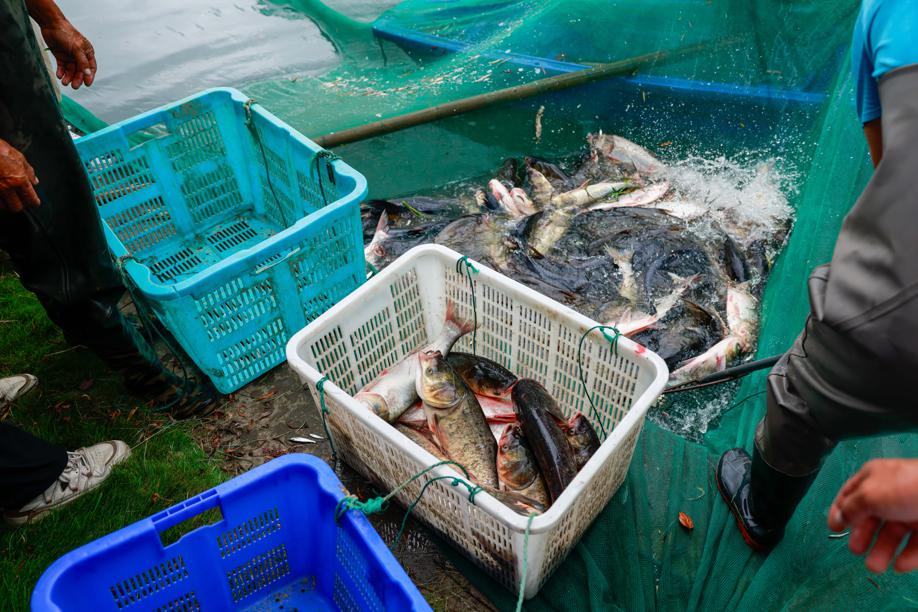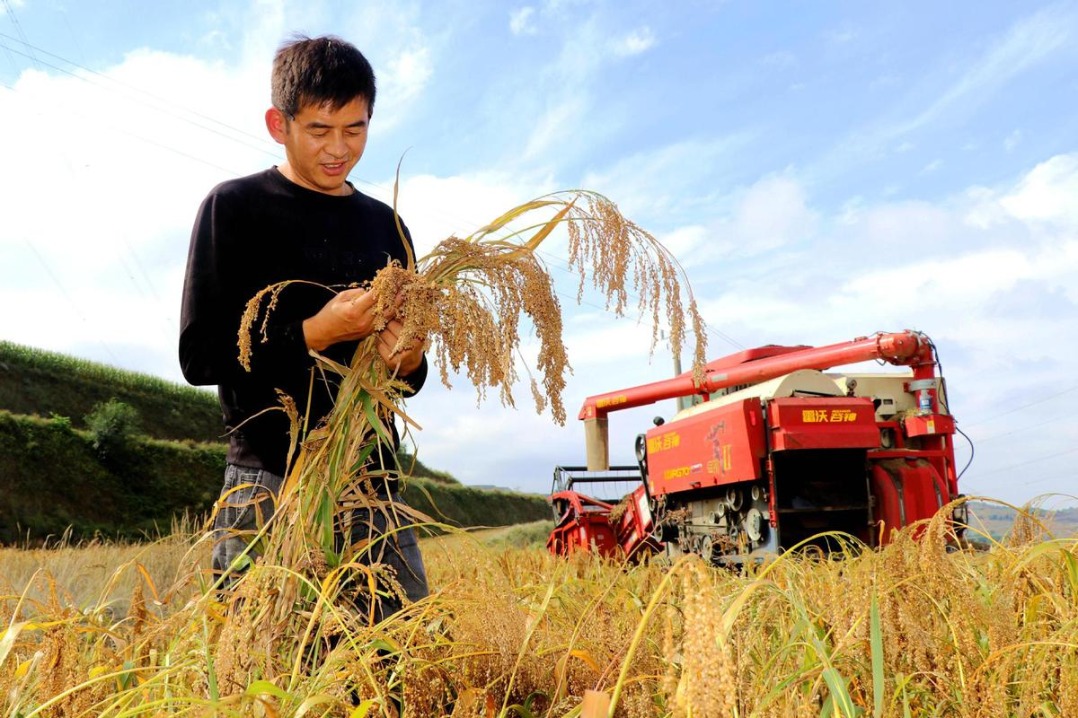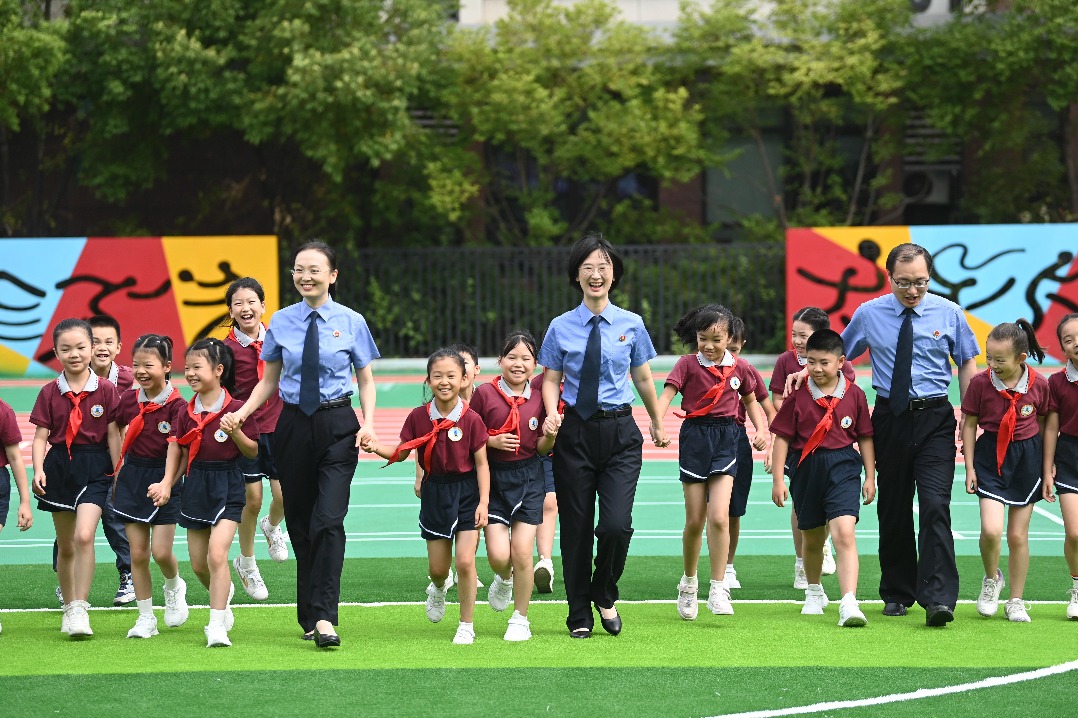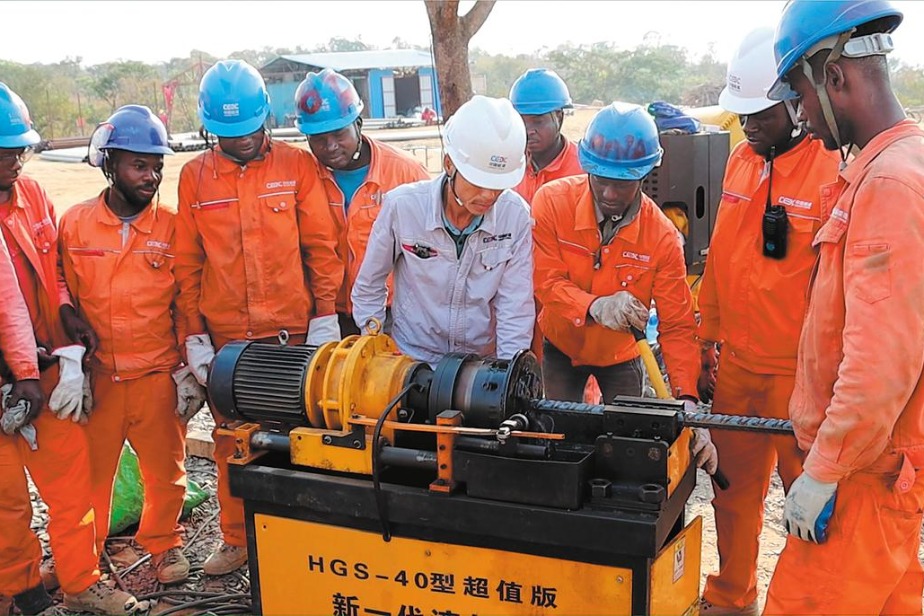Shanghai Ocean University expands intl fishery cooperation


The giant freshwater prawn has brought new opportunities for farmers and contributed to rural development in Cambodia. Through his studies in China, Chhorn is gaining knowledge and skills that he hopes to later apply to improve farming practices and support his communities back home.
"The Lancang-Mekong Project is not just about development, but also about people-to-people friendship and sharing a better future together," he added.
As China and Cambodia are advancing the construction of the Fish and Rice Corridor, more young talents beyond the aquaculture sector are joining to make an effort, such as the 25-year-old Aily Chhour, another Cambodian student currently pursuing her master's degree in applied economics at the university.
She has participated in the translation of the comprehensive guidance book on the China-Cambodia rice-fish farming, which aims to help improve the farming skills in her nation.
"This translated book helps the academic communication between the two nations. More importantly, it can better help those Cambodians who do not understand Chinese to easily gain the knowledge they need, and gain a better life out of poverty and famine. I felt very proud to be part of it," said Chhour.
Now working on her paper about international trade in the agricultural sector, she hopes to contribute more to her nation's agricultural development and deepen China-Cambodia cooperation and exchanges when returning to her hometown.
While in Indonesia, the university has been supporting the country's fishery development since 2022, constructing an offshore marine ranch that deployed 650 kongfang (basically cubic meters) of artificial reefs.
Experts from both nations have also jointly researched, designed, and optimized five types of artificial reef structures, which play a crucial role in restoring and protecting offshore coral reefs and fishery resources.
The marine ranch project primarily addresses the degradation of Indonesia's biological resources, particularly the decline in fishery resources, as well as the detrimental impact of climate change on coastal coral reef communities, according to Lin Dongming, a senior engineer from the College of Marine Living Resource Sciences and Management at Shanghai Ocean University.
"The marine ranch focuses on restoring the coastal ecosystems, protecting fishery resources, and enabling the sustainable development and utilization of marine biological resources. We have seen very positive results, as the fishery resources are well restored and the local fishermen are having much better harvests to improve their living," Lin added.
Looking ahead, Lin's team is actively exploring further into the integration of ecosystem, economic, and social development. They are working together to build a collaborative pattern that can benefit more countries in the future, a goal that echoes the university's vision through expanding international cooperation.
"We have signed agreements of cooperation with over 180 institutions across the globe. Taking full advantage of our expertise in aquaculture, we are expecting to share our knowledge and skills with the world, and contribute to global sustainable fishery and agricultural development," said Li Juanying, director of the university's international exchange office.
- Visa-free policy boosts number of Russian visitors to Shandong
- Shanghai Ocean University expands intl fishery cooperation
- Opera gala to celebrate Mid-Autumn Festival on Hebei Television
- Shanghai Disney Resort to expand its popular attraction Soaring Over the Horizon
- Guangdong's Gongbei Port bustling with activity ahead of Super Typhoon Ragasa
- Bus services between Guangdong and HK suspended as Super Typhoon Ragasa nears





































